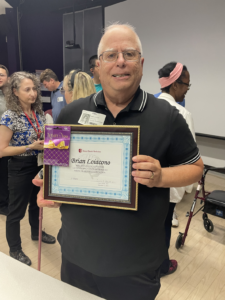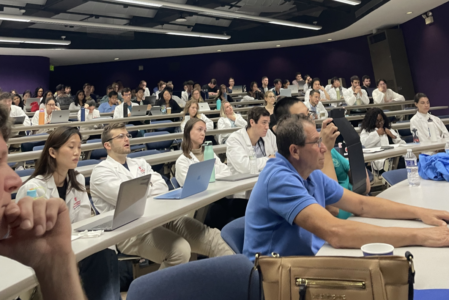
I have been volunteering to teach second-year neurology students about Facioscapulohumeral Muscular Dystrophy (FSHD) at the Renaissance School of Medicine at Stony Brook University. This is my fifth year of doing this, and I’ve discovered that this has been a source of self-help and motivation for me in managing my struggles with the condition. Sharing my experiences and challenges with FSHD has reinforced the importance of patience and adaptability, as others living with the condition have emphasized. Engaging with students has provided me with a platform to embrace my identity and advocate for awareness. I find this empowering. My interactions with students has also highlighted the significance of mental wellness and community support, fostering resilience and a positive outlook on life.
 It might seem like a small thing to attend a class and let students see what FSHD looks like. But consider that around 30 or 40 future doctors will remember my visit to their classroom and be better able to recognize and diagnose someone with FSHD walking into their future doctor’s office. In a world where many of us have undergone a long journey to find a doctor who can diagnose us, this feels like it makes a difference.
It might seem like a small thing to attend a class and let students see what FSHD looks like. But consider that around 30 or 40 future doctors will remember my visit to their classroom and be better able to recognize and diagnose someone with FSHD walking into their future doctor’s office. In a world where many of us have undergone a long journey to find a doctor who can diagnose us, this feels like it makes a difference.

Thank you for sharing, Brian! FSHD is still largely misunderstood and underdiagnosed, and your story will inspire future doctors to raise awareness and recognize FSHD!